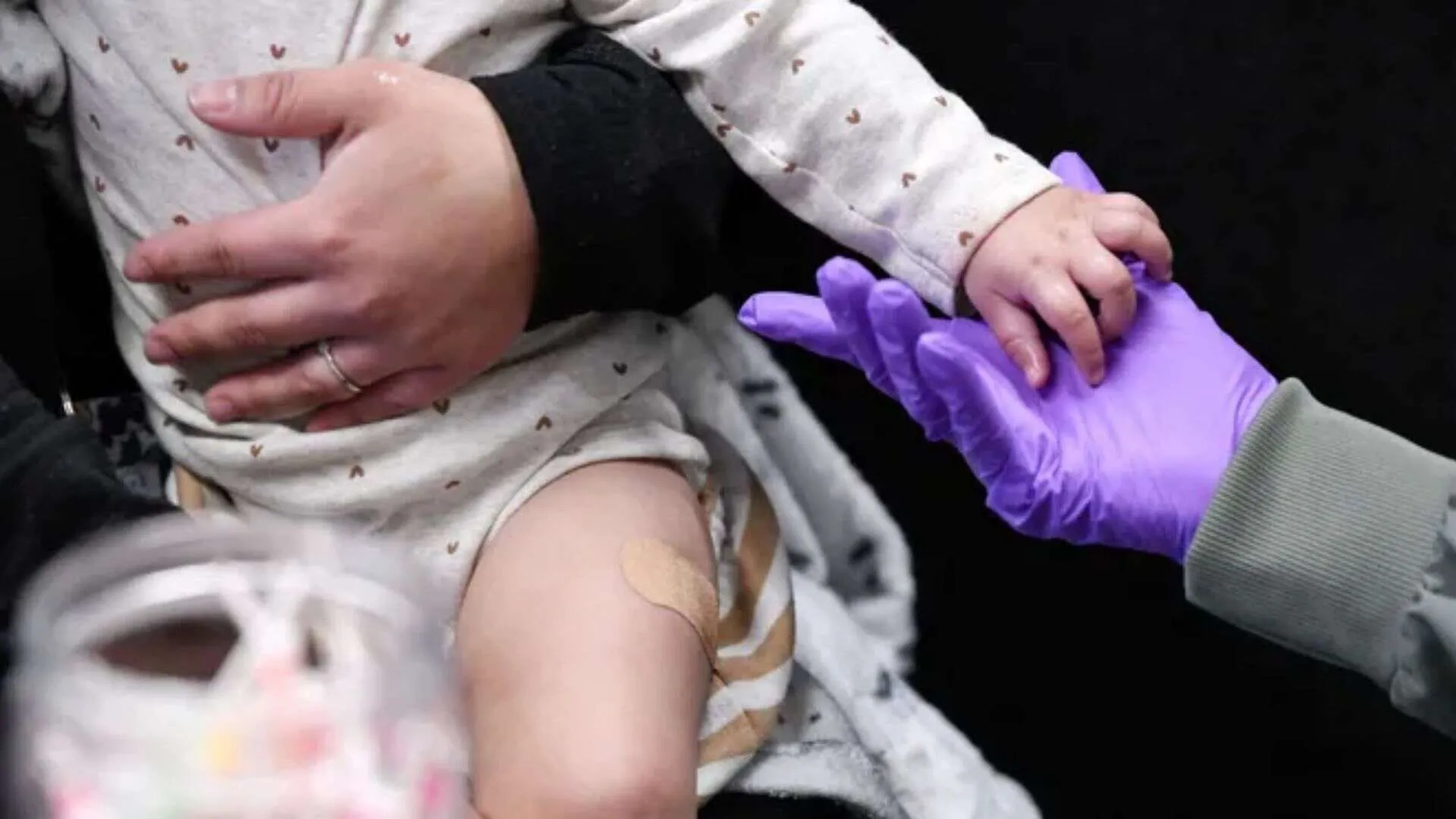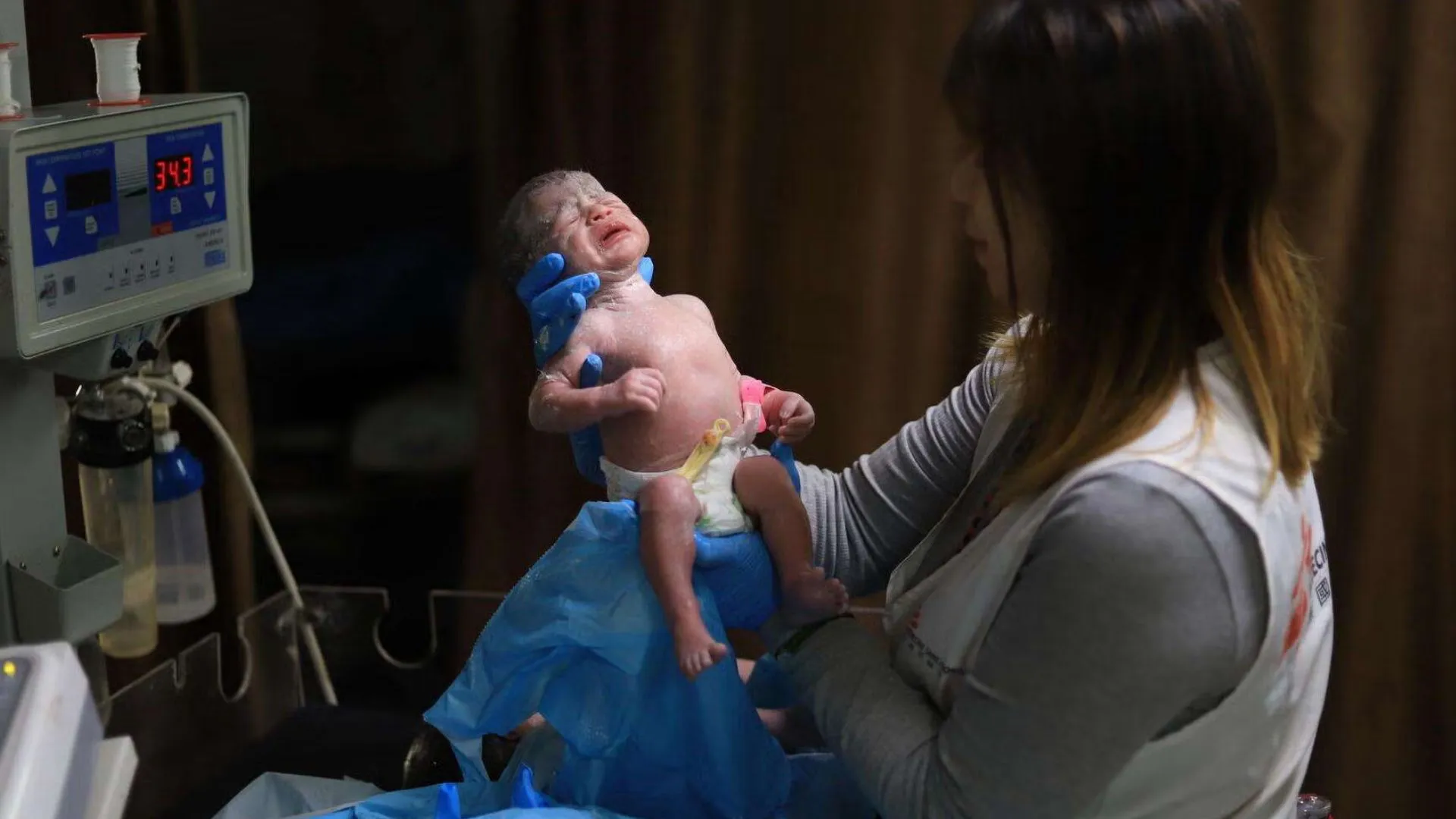The COVID-19 pandemic has been a defining event in global health, sparking unprecedented efforts to develop vaccines that would protect people from the virus. From the onset of the pandemic, several pharmaceutical companies raced to create vaccines, and by the end of 2020, the first vaccines were distributed worldwide. The introduction of vaccines was heralded as a major step toward returning to normalcy, and millions of individuals received their doses with the hope that they would not only protect themselves but also contribute to the global fight against the pandemic.
However, as time passed, some individuals who had received the COVID-19 vaccine began experiencing unusual and unexplained symptoms. These symptoms, which emerged after vaccination, prompted concerns among healthcare professionals, researchers, and the public. In response to these concerns, a team of researchers at Yale University has been conducting an in-depth investigation into a new phenomenon referred to as Post-Vaccination Syndrome (PVS).
PVS is a term that encompasses a variety of symptoms that arise in individuals after receiving the COVID-19 vaccine, which can be both severe and long-lasting. Yale scientists have recently published a groundbreaking study suggesting that PVS may be associated with distinct biological changes that affect the immune system, blood clotting, and neurological functions. The team’s findings have sparked both intrigue and alarm, with experts calling for further research into the condition and its potential implications for public health.
Understanding Post-Vaccination Syndrome (PVS)
Post-Vaccination Syndrome refers to a range of symptoms that some individuals experience after receiving a vaccine. These symptoms can vary significantly in severity and may include fatigue, joint pain, fever, headaches, and neurological symptoms such as dizziness, memory issues, or even seizures. Most people who experience these symptoms recover within a few days or weeks, but a subset of individuals continues to suffer from prolonged, debilitating effects.
Although cases of PVS are rare, the Yale research team has observed that the symptoms appear to be more pronounced in certain groups, particularly individuals with underlying health conditions. These findings have raised important questions about the long-term safety of the COVID-19 vaccines and the mechanisms that may be contributing to the development of these post-vaccination symptoms.
The research conducted by Yale University has focused on the biological changes that occur in the body following vaccination. These changes, according to the researchers, may provide critical insight into the development of Post-Vaccination Syndrome and its relationship to the immune system and other bodily functions.
Distinct Biological Changes: Unraveling the Mechanisms
Yale researchers have identified a series of “distinct biological changes” in the bodies of individuals who develop Post-Vaccination Syndrome. These changes suggest that the body’s response to the vaccine might trigger immune dysregulation or an abnormal immune response in certain individuals. The study found that the immune system’s overreaction to the vaccine, in some cases, led to excessive inflammation, blood clotting, and damage to organs and tissues.
One of the most striking findings of the research was the role of the immune system. In most individuals, the body’s immune system responds to the vaccine by producing antibodies that help protect against future infection by the virus. However, in some cases, the researchers found that the immune system appears to become hyperactive, leading to autoimmune-like responses. This abnormal immune reaction can cause inflammation and damage to various organs, including the brain, heart, and kidneys.
The research also pointed to the possibility that the vaccines might interact with pre-existing conditions, making individuals more susceptible to Post-Vaccination Syndrome. For example, people with autoimmune diseases or conditions that affect blood clotting may be more likely to experience severe symptoms after vaccination. While these cases are rare, they highlight the need for further investigation into the long-term effects of the vaccine, particularly for individuals who may be at higher risk.
Another key discovery was the association between PVS and abnormal blood clotting. The Yale study found that individuals with Post-Vaccination Syndrome often had elevated levels of clotting factors in their blood, which can lead to the formation of dangerous blood clots. These clots can cause a variety of complications, such as strokes, heart attacks, and deep vein thrombosis. While blood clotting has been a known side effect of some COVID-19 vaccines, the Yale team’s findings suggest that the syndrome may be linked to a more persistent and widespread clotting disorder.
The neurological effects of PVS were also a major focus of the Yale study. Researchers noted that some individuals experienced cognitive issues such as memory loss, difficulty concentrating, and mental fogginess, which persisted long after the vaccine had been administered. The researchers theorized that the vaccine-induced inflammation might affect the brain’s neural pathways, leading to these symptoms. This phenomenon, which has been likened to “brain fog” experienced by individuals with long COVID, is a growing concern among experts.
Clinical Implications and Public Health Concerns
The discovery of Post-Vaccination Syndrome and its potential link to these biological changes raises several important clinical and public health questions. While the vast majority of individuals who receive the COVID-19 vaccine do not experience any adverse effects, the existence of Post-Vaccination Syndrome means that healthcare providers need to be vigilant when monitoring individuals after vaccination.
As the Yale researchers have pointed out, further studies are necessary to understand the full scope of PVS and to determine who is most at risk for developing the condition. This will require a large-scale, comprehensive effort involving clinical trials, data collection, and long-term follow-up with patients who have experienced PVS symptoms. Such studies will be crucial for determining the long-term safety of COVID-19 vaccines and whether certain individuals should be excluded from receiving them due to underlying health risks.
The public health community must also take a balanced approach when communicating the risks and benefits of the COVID-19 vaccines. While the vaccines have proven to be highly effective at preventing severe illness, hospitalization, and death from COVID-19, it is important that people are informed about potential risks, including the possibility of Post-Vaccination Syndrome. Public health messaging should provide transparency about these risks, while also emphasizing the importance of vaccination in controlling the spread of the virus.
Moving Forward: Research and Vigilance
In response to these findings, public health authorities around the world are calling for more research into the causes and effects of Post-Vaccination Syndrome. While the Yale study is a significant step forward in understanding this condition, it is just the beginning of a larger effort to assess the long-term impact of the COVID-19 vaccines.
The research community is currently exploring multiple avenues of inquiry. For example, researchers are examining the genetic and environmental factors that may predispose individuals to develop Post-Vaccination Syndrome. It is possible that certain genetic variations or pre-existing conditions make some people more vulnerable to the syndrome. Additionally, studies are being conducted to explore how different vaccines, such as those developed by Pfizer, Moderna, and Johnson & Johnson, may affect the likelihood of developing PVS.
Given the alarming nature of these findings, healthcare providers are urged to monitor patients who report symptoms of Post-Vaccination Syndrome and offer appropriate support. Clinicians should be prepared to diagnose and treat the condition promptly, and research is needed to develop new treatments that can alleviate the symptoms of PVS and prevent long-term complications.
In the meantime, it is essential that individuals who experience any unusual symptoms after vaccination report them to healthcare professionals. Early identification of Post-Vaccination Syndrome is key to mitigating the potential impact of the condition and ensuring that affected individuals receive the care they need.
The link between COVID-19 vaccines and Post-Vaccination Syndrome, as identified by Yale scientists, is an alarming development that warrants further investigation. While the vaccines have been proven to be highly effective in preventing severe illness, the emergence of Post-Vaccination Syndrome calls for a more nuanced approach to vaccine safety. Yale’s research has uncovered distinct biological changes associated with the condition, including immune dysregulation, abnormal blood clotting, and neurological effects. These findings underscore the importance of continued research and vigilance in monitoring the long-term effects of the COVID-19 vaccines. As we move forward, it is crucial that healthcare professionals, researchers, and public health authorities work together to better understand and address the challenges posed by Post-Vaccination Syndrome. Only through comprehensive research and transparent communication can we ensure the ongoing safety of the vaccines and the health of individuals worldwide.























